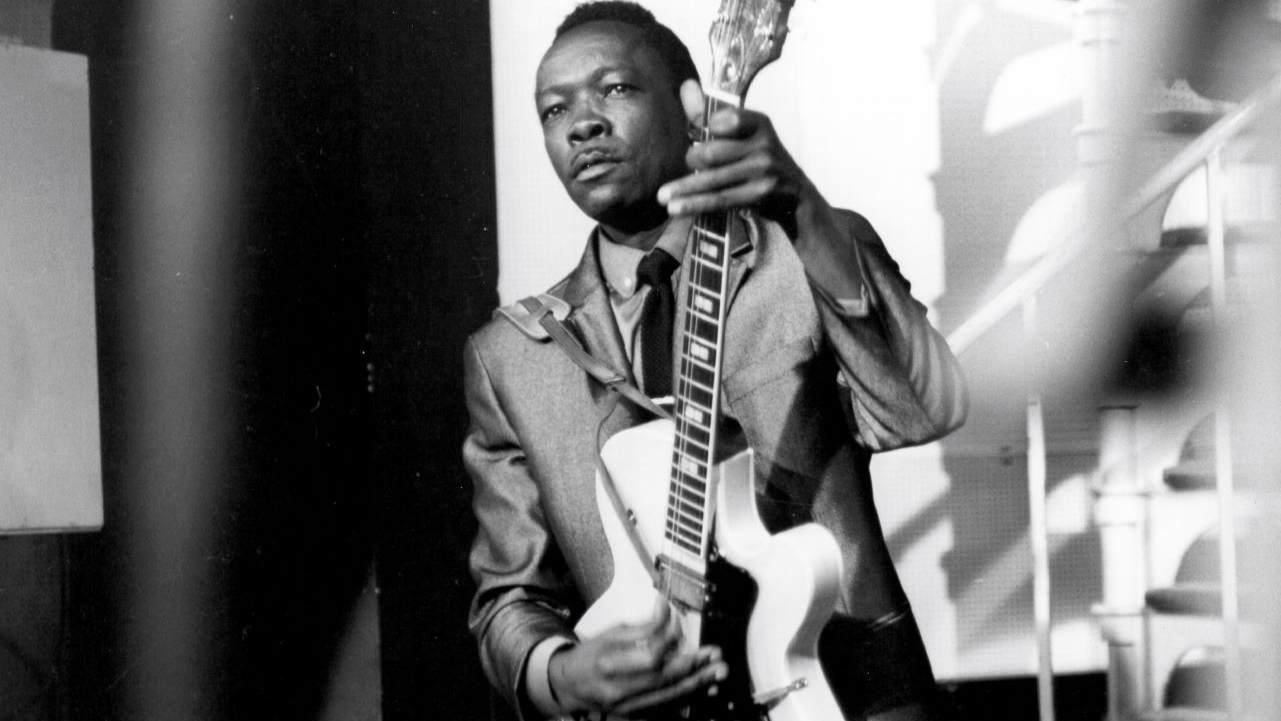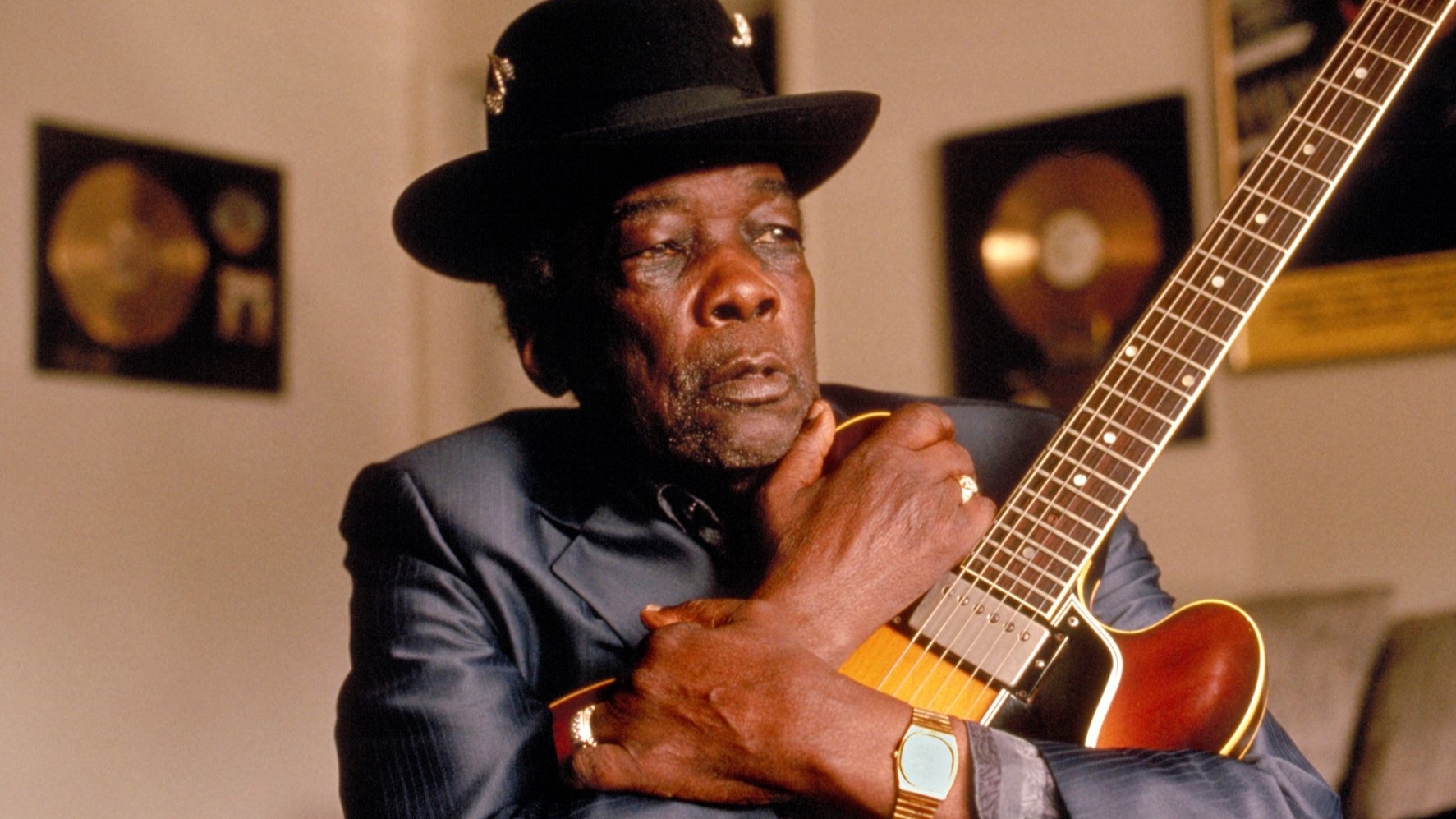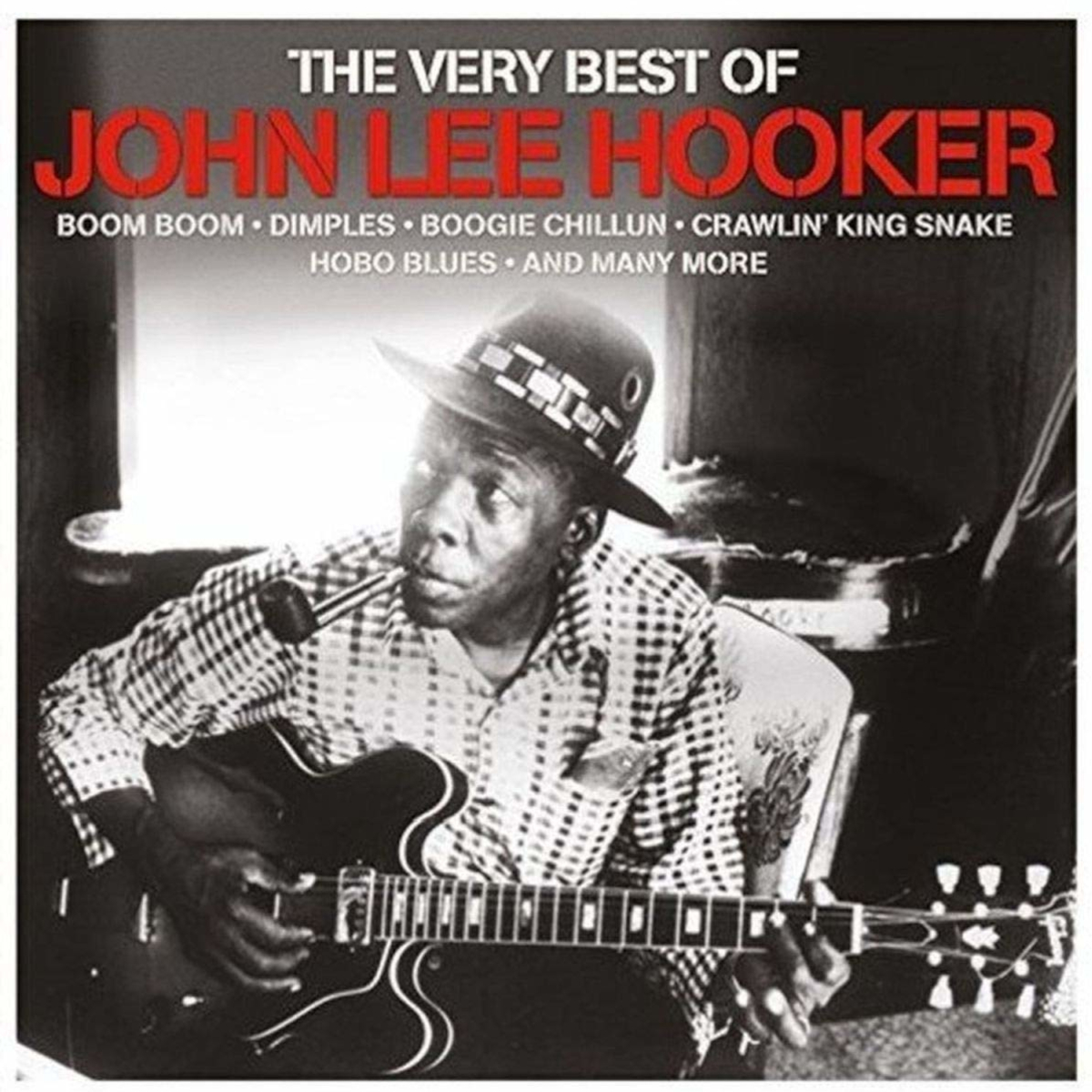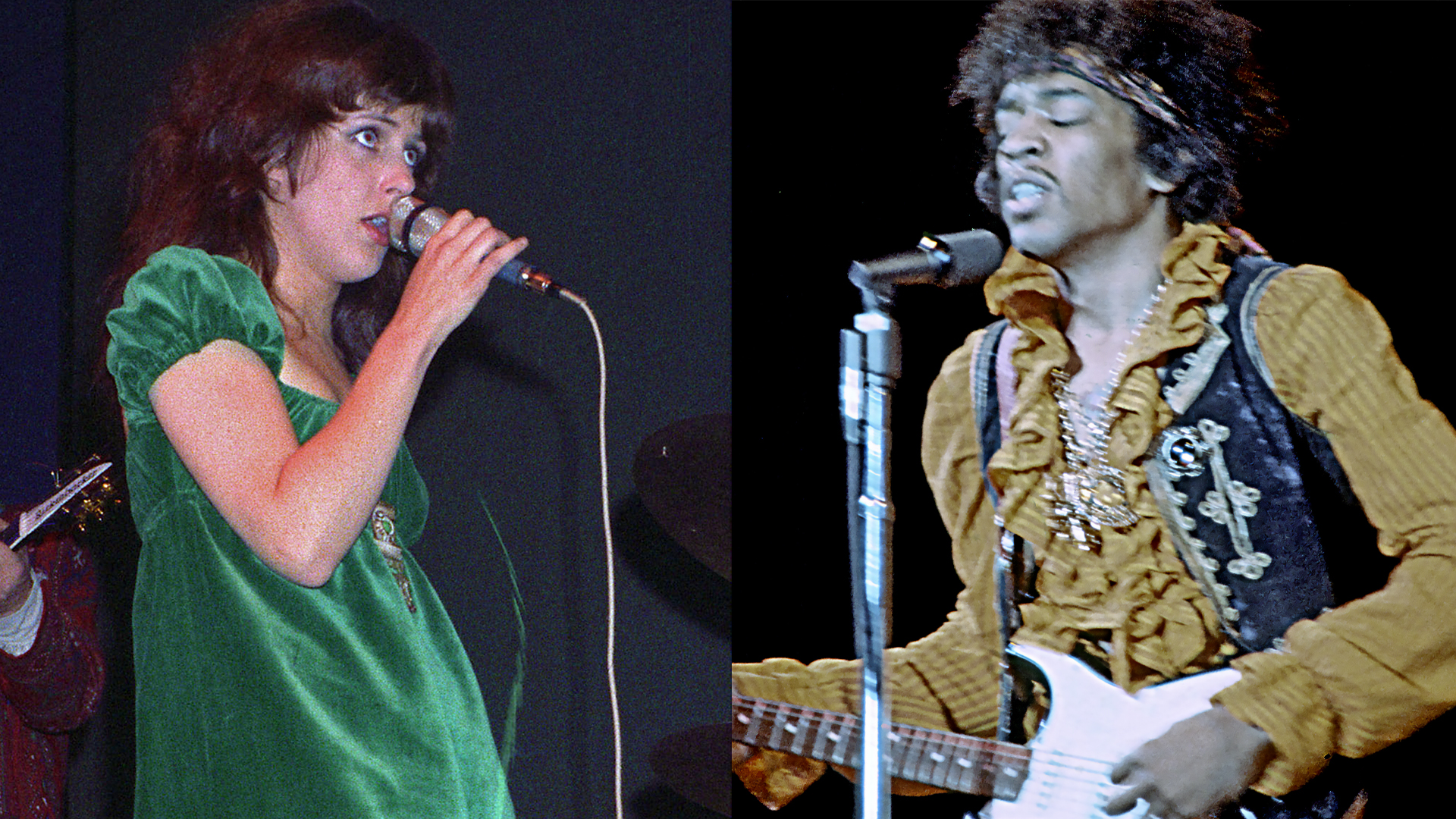Watch John Lee Hooker Bringing the Blues to London in 1964
This historic BBC performance of “Boom Boom” helped turn a whole generation on to the blues.

John Lee Hooker’s career began in Clarksdale, Mississippi, during the 1930s. Unlike his blues guitar contemporaries Muddy Waters and Robert Johnson, Hooker didn't play roll-and-tumble Delta jukes, choosing instead to launch his career in Memphis, singing gospel and blues.
He moved to Detroit after World War II to work by day in an auto plant and make the rounds of Black Bottom clubs by night. 1948's "Boogie Chillen'," his first R&B hit, inaugurated the most prolific recording career in postwar history. (It's estimated that between 1949 and 1953 alone, Hooker cut some 70 singles on 24 different labels, using a dozen different names to avoid contractual problems.)
Hooker made his first foray into Europe in '62 and returned to find that "Boom Boom" had become his first crossover hit. Covers by the Animals and other British Invasion bands helped him win white audiences at home.
Here he is performing "Boom Boom" with the Groundhogs live on BBC television in 1964:
The following John Lee Hooker interview extracts originally appeared in the August 1992 edition of Guitar Player…
Your songs turned a generation of kids on to the blues during the 1960s.
That "Boom Boom," that "Dimples" – turned a whole generation. It went to Europe, and then come back here and turned the whole universe on. Then different artists took to doing that song, "Boom Boom."

What do you look for in a tone?
I look for a deep, gutty feeling. I don't use picks, so I can get that deep gut feeling. People ask, "How do you get that?" It's just there. A lot of people try to play real fast chords – da da da da da – that's not the blues. It's synthetic. It ain't the hard, solid blues. It's a lot of speed and everything. It has no feeling to it.
You've got to sit down and play some [whispers] funky, funky guitar. Take your time! Don't rush it. Just let it come flowing through you. I can play guitar so funky, until it brings teardrops to your eyes. It has that funky, funky tone. I'm just me.
Just let it come flowing through you
John Lee Hooker
While most musicians stick to 12-bar blues, you seldom follow that format.
That's for the birds. People just feel – that's the way the blues is supposed to be played. Shut your eyes, and then you'll know what you're doing. I know what notes to hit. I know what notes not to hit. I can do a 12-bar perfect – perfect. Oh, yeah. If I did, then I wouldn't be John Lee Hooker.
See, I'm known for not doing it. When I'm just playing to myself I do it: 8, 12, 4, 16, 24. But ordinarily I don't do it, because it would take away a lot of my feeling. You cannot learn this in a book. You feel it here [points to his heart and head], not by writing on a piece of paper. Throw that paper away!
Shut your eyes, and then you'll know what you're doing
John Lee Hooker
When I walk into a studio, I don't need all that stuff. I can go into a studio and in two hours' time I can record five or six songs. Sometimes it takes some people three or four weeks to record one or two songs!
Is it a compliment when people try to play like you?
Yeah, it is. Because I know I'm doing something to be loved.
Perhaps the measure of a truly great man is how he treats people day in and day out.
Right! The little things in life, the love. I always believe in "it comes back to you if you do something good." I was taught that, and I think it does. You do good deeds, somewhere in life it's going to come back.
You can only do wrong so long before you get it in some kind of way. That's my belief. So I'm happy with my life. I had a good life, and I had a rough life – I've had both.
I don't try to live in the past. I can't bring back those little things. I can't change the rough things that come through, so I look for the future. You can't live in the past – a lot of people try to live in a memory.
I live for today and for people today.

Explore John Lee Hooker's catalog here.
Get The Pick Newsletter
All the latest guitar news, interviews, lessons, reviews, deals and more, direct to your inbox!
Jas Obrecht was a staff editor for Guitar Player, 1978-1998. The author of several books, he runs the Talking Guitar YouTube channel and online magazine at jasobrecht.substack.com.
“I’m still playing but I’m covered in blood. Billy’s looking at me like, ‘Yeah! That’s punk rock!'” Steve Stevens on his all-time worst gig with Billy Idol — and the visit to Jimi Hendrix's grave that never happened
"He goes to England and all of a sudden he's on the floor humping his guitar!” Gene Simmons tells how he, Paul Stanley and Ace Frehley followed Jimi Hendrix's lead and gave Kiss some British swagger










